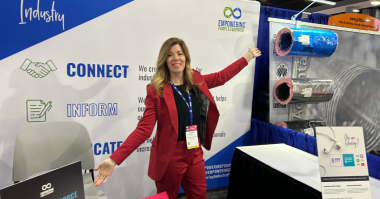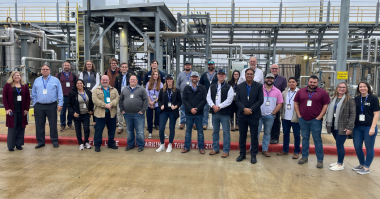Being an Applications Engineer is challenging – in a good way. Applications engineers work with OEMs, distributors, and end users to determine which pump products or other industrial equipment is required to meet the end user’s needs. Every project is different, requiring Applications Engineers to thoroughly review equipment design options, material selection, and other criteria which enables them to recommend the right product for a specific application.
It is important to acknowledge that most of the time, the system engineering has already been completed by an end user’s consultant or by the Process Engineer; so the Applications Engineer may not have any input into the development of the system head curve.
Why is the system head curve important?
Reviewing the system head curve is the most important thing an Applications Engineer can do when selecting a pump because it helps them understand how a pump will fit in a particular system. The system head curve gives the AE information about the total loss of head through the entire piping system. To explain further, a pump does not know where to operate; it runs where it meets the system head curve. There are two basic elements to any system – 1) static head and 2) friction loss. The static head is basically the elevation difference (the difference between the point at which the pump resides and the point to which it is discharging). The other factor, friction loss, is dependent upon the length of the piping and the flow through that pipe. Generally, as the flow increases, the friction loss also increases. Knowing the static head and the friction loss allows an engineer to create that system curve, which can then be used with pump curves to determine the point where a pump should operate within that system.
Tips for Application Engineers
If an Applications Engineer has the opportunity to talk directly with the end user, it is extremely important for that AE to ask LOTS of questions. Below are some questions / information that the AE needs:
- Flow (ask for minimum and maximum flow conditions)
- Pressure (here again, ask for minimum and maximum operating pressures. Will the system be operated on minimum flow by-pass?)
- Temperature (min / max)
- Specific Gravity (ask if the specific gravity will remain constant. Some systems have varying SG – for example, stack wash pumps have a very low SG at start up but high SG after operation)
- Check for sufficient NPSHa (including Hydraulic Institute recommended safety margin)
- Viscosity (if required)
- Chemical compatibility of the pump to the product being pumped. (Ask what type of materials are being used for the piping and valves, etc.)
- Installation environment: inside / outside
- Power available
- Will customer be supplying motor? If not, what is the motor manufacturer and enclosure preferred?
- Preferred coupling style
- Preferred bearing lubrication (oil / grease)
- Preferred stuffing box arrangement (packed / mechanical seal)
- Does the end user have a preferred supplier for mechanical seals or packing?
- Spare parts required?
- Performance tests required?
- Will start-up services be required?
- Project delivery requirements and payment terms
One great thing about being an Applications Engineer today is that modern technology has made the pump selection process easier. There are many equipment manufacturers that have developed online selection tools, whereby Applications Engineers can enter the static head, the length and size of the pipe, and within minutes, find pump products that might work for their customer’s application.
Have YOU used any online pump selection tools? If so, which ones have you found to be most useful? Please use the comment section to share your experience about the pump selection process.




Comments